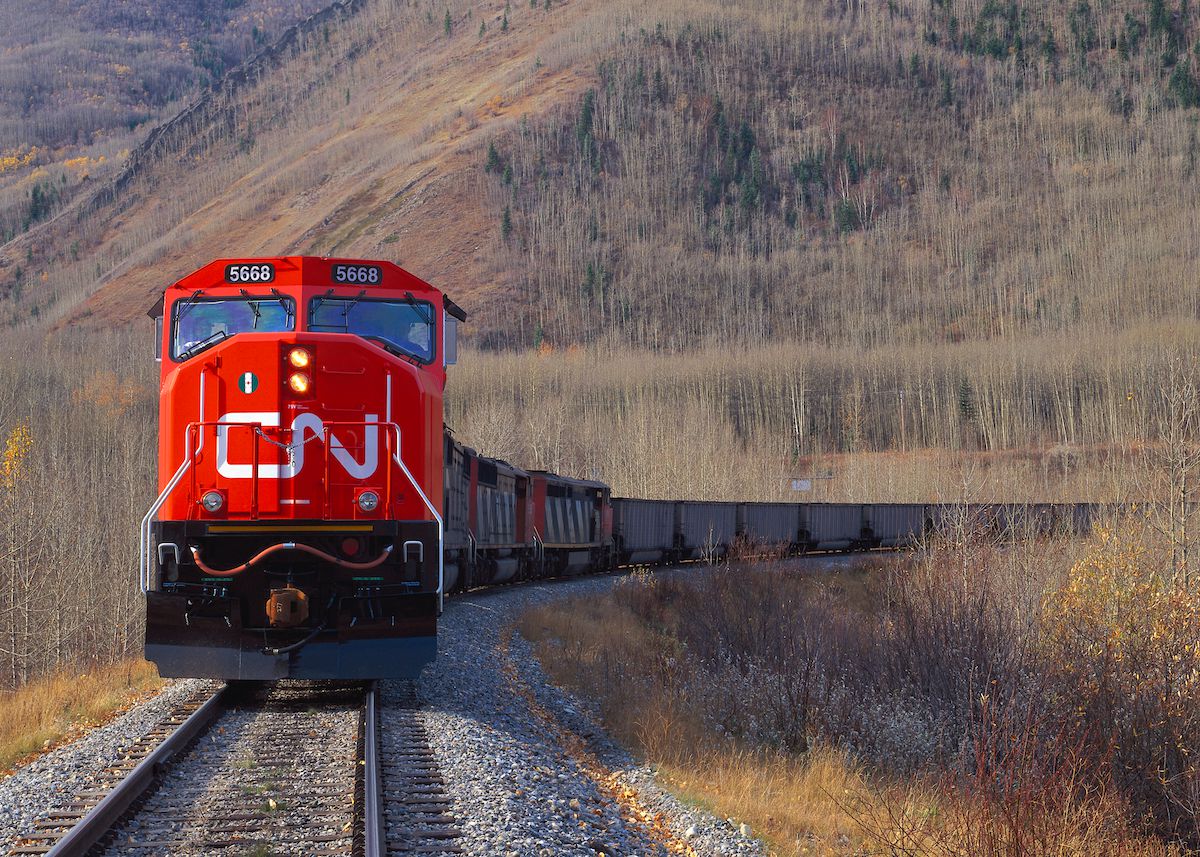Finlayson: Rail strike could throw Canada into recession
Roughly $380 billion of goods are shipped by Canadian rail carriers every year.

Key Takeaways:
- A prolonged rail worker strike could severely impact the Canadian economy. Some experts say it has the potential cause a recession.
- The construction industry is highly dependent on a healthy economy to generate demand.
- There is significant pressure on the federal government to intervene and prevent the strike.
The Whole Story:
The federal government is facing pressure to help avoid a rail worker strike set to begin on Aug. 22 that could cripple the Canadian economy.
Jock Finlayson, chief economist at the Independent Contractors and Businesses Association (ICBA), explained that a protracted rail strike could be devastating to the construction sector. The initial impact of not being able to receive materials would pale in comparison to the effects it would have on drive demand.
“The Canadian economy is barely growing right now. If this ballooned into a multi-week shutdown, it would likely throw us into a recession,” Finlayson said. “This is in the federal government’s bailiwick. It is their responsibility and they need to use all the tools.”
Finlayson noted that Canada exports more than $700 billion of goods every year, and it import goods worth almost as much. Both exports and imports are vital part of Canada’s $3 trillion national economy. Many traded goods, at some point, are moved by rail. Today, some $380 billion of goods are shipped by Canadian rail carriers every year. He noted that avoiding a strike is particularly important right now as the economy is posting very sluggish growth and Canada’s prosperity is declining as measured by real GDP per capita.
“in recent years, Canada’s ranking in global competitiveness surveys has been slipping, and our reputation as a reliable and efficient supplier of traded goods has suffered one blow after another,” said Finlayson. “A rail strike would compound these problems, potentially doing incalculable harm to our economy.”
He explained that the construction industry ultimately depends on a vibrant, productive and growing Canadian economy to create demand for the work done and the services provided by it.
“If the economy stalls, falters and is rendered less efficient as a result of labour disputes, construction companies and their workers will suffer,” he said.
The federal government also faced criticism from officials in Alberta, who accused Ottawa of creating a labour crisis.
“First the British Columbia ports, then WestJet, now the railways. It is one strike after another,” said Devin Dreeshen, Alberta’s minister of transportation & economic corridors. “These continuous strikes are eroding Canada’s reputation around the world as a reliable trading partner. The federal government must fix the labour problems it has created and exercise its responsibility to ensure labour stability within federally regulated transportation workplaces.”
Federal Labour Minister Steven MacKinnon released a statement Monday saying that collective bargaining negotiations belong to CN Rail, CPKC and TCRC workers alone, but their effects will be borne by all Canadians.
“The parties must do the hard work necessary to reach agreements at the bargaining table and prevent a full work stoppage. Canadians expect the parties’ efforts to be equal to the trust conferred on them,” he said.
After negotiations collapsed, 9,000 unionized rail workers from the Teamsters Canada Rail Conference (TCRC) are set to walk off the job, effectively bringing the nation’s rail system to a standstill and disrupting a critical link in the supply chain for nearly everything.
Parties involved, include:
- Teamsters Canada Rail Conference (TCRC): The union representing over 9,000 rail workers at both major Canadian railways.
- Canadian National Railway (CN): One of Canada’s two major freight rail companies.
- Canadian Pacific Kansas City (CPKC): The other major Canadian freight rail company, formed in 2023 through a merger.
- Federal Government: Represented by Labour Minister Steven Mackinnon, who has called on the parties to negotiate but has not indicated willingness to intervene directly.
The main points of contention between the union and the rail companies include:
- Safety and Fatigue: The union claims both companies are trying to reduce safety provisions related to worker fatigue.
- Work Conditions: CN is accused of proposing changes that would require workers to relocate across Canada for extended periods.
- Contract Negotiations: Labor agreements for both railway companies expired at the end of 2023, and negotiations have been ongoing since then.
The impact of strikes can have on Canada’s construction industry and the broader economy are massive. A 2023 strike by port workers in B.C. reduced Canada’s gross domestic product by between $730 million and $980 million, and affected merchandise shipments having a total value of $10 billion.
The strike caused major delays in receiving construction materials and equipment imported through the Port of Vancouver. Many construction projects faced shortages of essential supplies, leading to slowdowns or temporary halts in work.
But Finlayson noted that a rail strike would be vastly larger in scale.
“We are talking about the entire national freight network,” he said. “This country is incredibly dependent on linear infrastructure, including rail. We are geographically huge and need efficient transportation infrastructure operating 24/7. The federal government needs to do its job.”
